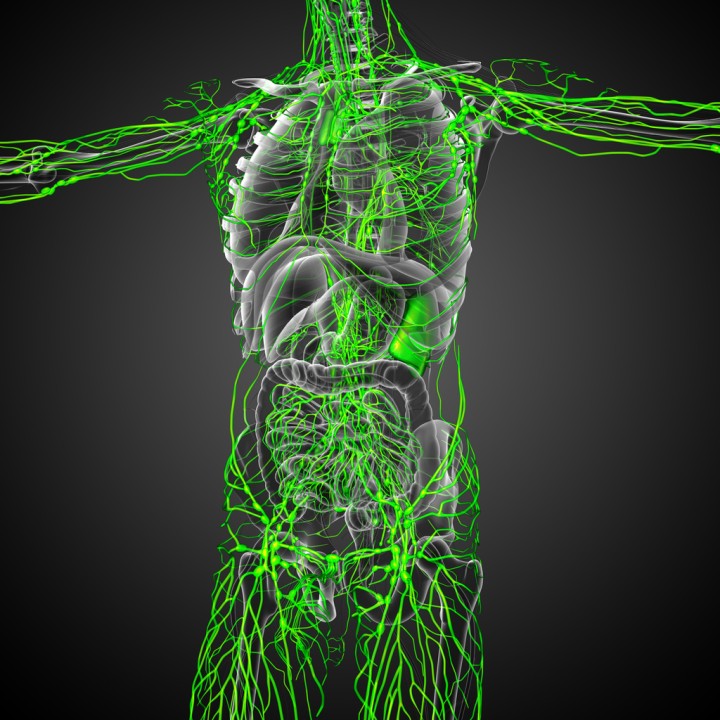
The Lymphatic System: Unveiling its Vital Role in Health and Well-being
The Lymphatic System: Unveiling its Vital Role in Health and Well-being
While the cardiovascular system often takes center stage when it comes to understanding the body's circulatory system, another equally important network is at play—the lymphatic system. This intricate system of vessels, organs, and nodes quietly works behind the scenes, performing vital functions that add to health and well-being. In this article, we will delve into the lymphatic system's role, exploring its functions, importance, and impact on our body's equilibrium.

What is the Lymphatic System?
The lymphatic system is a complex network of lymph vessels, lymph nodes, tonsils, the spleen, and the thymus gland. It works parallel to the blood circulatory system and transports a clear fluid called lymph throughout the body. Lymph is derived from interstitial fluid, which surrounds and bathes the body's cells, providing nutrients and removing waste products.
Immune Defense and Pathogen Removal
One of the primary functions of the lymphatic system is to bolster our immune defenses. Lymph nodes act as filtration centers, trapping and destroying foreign substances like bacteria, viruses, and other pathogens. These nodes contain specialized immune cells, including lymphocytes, that recognize and neutralize harmful invaders. By filtering and monitoring lymph fluid, the lymphatic system helps prevent the spread of infections throughout the body.

Fluid Balance and Tissue Health
The lymphatic system is critical in maintaining fluid balance within the body. As blood circulates through the capillaries, a portion of the plasma leaks into the surrounding tissues. The lymphatic vessels collect this excess fluid, along with cellular waste and proteins, and transport it back to the bloodstream. This process helps regulate tissue fluid balance, preventing swelling (edema) and promoting overall tissue health.

Nutrient Absorption and Transport
Besides waste removal, the lymphatic system facilitates the absorption and transport of dietary fats and fat-soluble vitamins. The lacteals, specialized lymphatic vessels in the small intestine, absorb these nutrients and package them into chylomicrons—lipid-rich particles. The chylomicrons enter the lymphatic vessels and eventually merge with the bloodstream, delivering essential nutrients.
Cancer and Metastasis
The lymphatic system can both aid and be affected by cancer. Cancer cells can spread through the lymphatic vessels, forming metastases in nearby lymph nodes or distant organs. This phenomenon highlights the crucial role of lymph nodes in staging and diagnosing cancer. Additionally, surgical procedures, such as sentinel lymph node biopsy, allow doctors to assess the spread of cancer and design appropriate treatment plans.
Role in the Immune Response
The lymphatic system is integral to the immune response, acting as a conduit for immune cells. Lymphocytes, including B-cells and T-cells, are produced and matured within the lymphatic system's organs, such as the bone marrow and thymus gland. These cells circulate in the lymphatic vessels and can quickly reach areas of infection or inflammation, aiding in the immune response and facilitating healing.

Often overshadowed by its cardiovascular counterpart, the lymphatic system plays a vital and multi-faceted role in maintaining our health and well-being. From immune defense and pathogen removal to fluid balance, nutrient absorption, and cancer detection, the lymphatic system impacts numerous aspects of our physiology. By understanding its intricate functions, we can appreciate the significance of this unique system and take steps to support its optimal functioning, ultimately promoting our overall health.

Register for a class with the Academy of Lymphatic Studies and begin your journey in assisting with postoperative care and recovery. Click here to see the full list of courses offered by ACOLS. Contact the Admissions Department at admissions@acols.com or 1-772-589-3355 option 2 with any questions, and they will assist in guiding you in selecting the course for you!
Next Trend Realty LLC./ Har.com/Chester-Swanson/agent_cbswan
10moThanks for the updates on, The LYMPHLETTER.